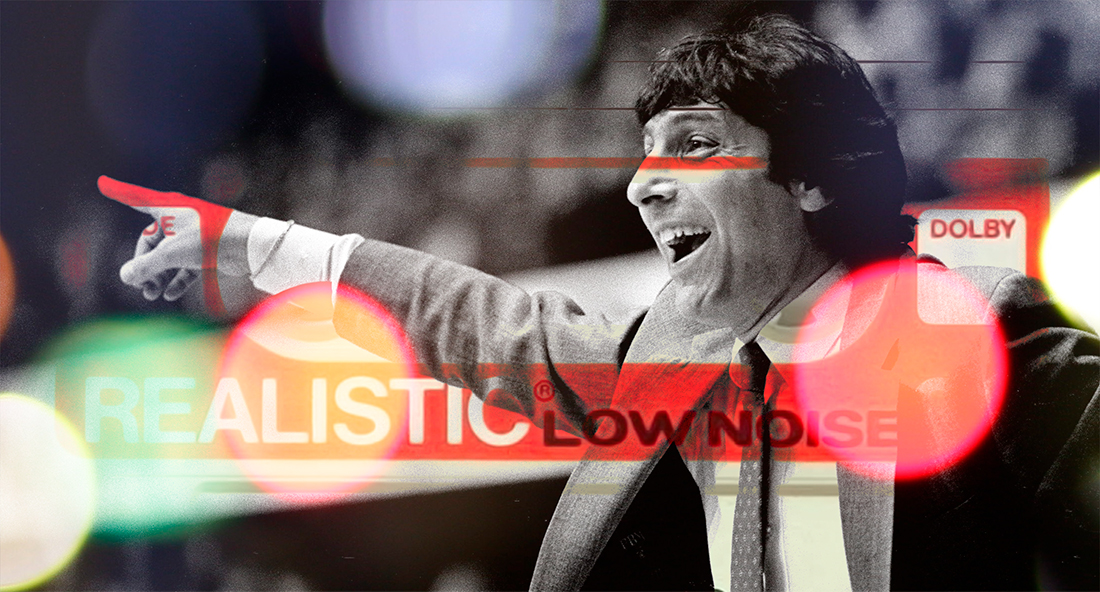The Valvano Principle
- 012422
- 3 minutes
This is a true story, as I remember it.
The rhetoric surrounding success in sports tends to be relatively black and white: wins and losses. If you expect to be a big-time coach, you have to work at a big-time school, make big-time recruits, and win big-time games. Life's no different. What's too rarely honored is all the effort in between.
As a boy, I wanted the wins. What kid doesn't? I wanted the big-time moments and wasn't especially keen on embracing another mindset. The idea of a coach preaching anything more or less hadn't crossed my mind.
In 1983, Coach Jimmy Valvano and the #6-seed North Carolina State Wolfpack upset the #1-seed, the Hakeem Olajuwon-led Houston Cougars in the NCAA Men's Basketball Championship. It was the big-time moment that, for me, defined a big-time coach. Coach V ran onto the court, arms flailing, to his big-time players who had just won the biggest-time game of their lives. In a moment like this, it's difficult to think of anything besides the moment itself: the joy, the surprise, the pride and glory.
Fast forward to 1987—I was a junior in high school who had played sports his whole life and who was on the verge of his first epiphany: that there was more to playing than wins and losses. That year, my dad returned from a business conference with a cassette recording of the keynote speaker, Jimmy Valvano. While the first listen of his speech meant little to sixteen-year-old me, that tape found its way into the console of my Chevy Cavalier (dude) and the magnetized signal of that rousing oratory was eventually transferred to my adolescent brain.
Of course, winning is great. But, as we learn, there's so much more to success. In the speech, Coach V told a story of his first game as a college basketball coach. At halftime, his team headed to the locker room down fifty-six points. You heard that right. He would later explain that basketball isn't like chess or boxing—you can't just knock your king or throw in the towel. Regardless of the score, his team was headed back onto the court for another half.
The friendly, impassioned voice on that cassette focused on motivation—what drives you to success. That same voice called on his team to win just the next half. He said if they lose by less than fifty-six points, they could mark that as an improvement, and therefore a success. It's not all about winning.
Coach V’s philosophy resolves to three basic motivators, which he insists we all should work at daily: laugh, think, and cry. While I may have been a relatively mature teenager, only one of those sounded appealing. But I soon grounded myself in his belief that to properly absorb all you can from life, you have to find the fun, the beautiful, and the emotional. Whether it's on the court, in the boardroom, or in a book, it's there to be found. It's this work and dedication that truly define success.
Later, as a baseball coach, I coined (or stole) the phrase, "the most important pitch is the next one." Win or lose, I’m more interested in preparing for what comes next. This is how that Radio Shack Realistic budget cassette insinuated itself into my life.
Today, our work at FNA goes beyond making acquaintances. We form deeper ties to clients, which requires learning more about them, ultimately discovering what makes them laugh, think, and cry.
You may know Coach Valvano from the national award for perseverance named after him. His life's motto, which capped off his speech, was simply: "Don't quit. Don't ever quit." That 1983 big-time game may be what earned him spotlight and recognition, but what got him there is what made him a successful coach. It enabled him to take an underdog team to their biggest stage and get it done. That ability to motivate and inspire is his lasting legacy.
It's one that I strive to implement every day. It's why we appropriated #likeagoodcoach for our online messaging. Coach V is, for me, its epitome. He has inspired me to do what a good coach does: take you where you can't take yourself. And I can promise, we will not quit trying. We won't ever quit.


